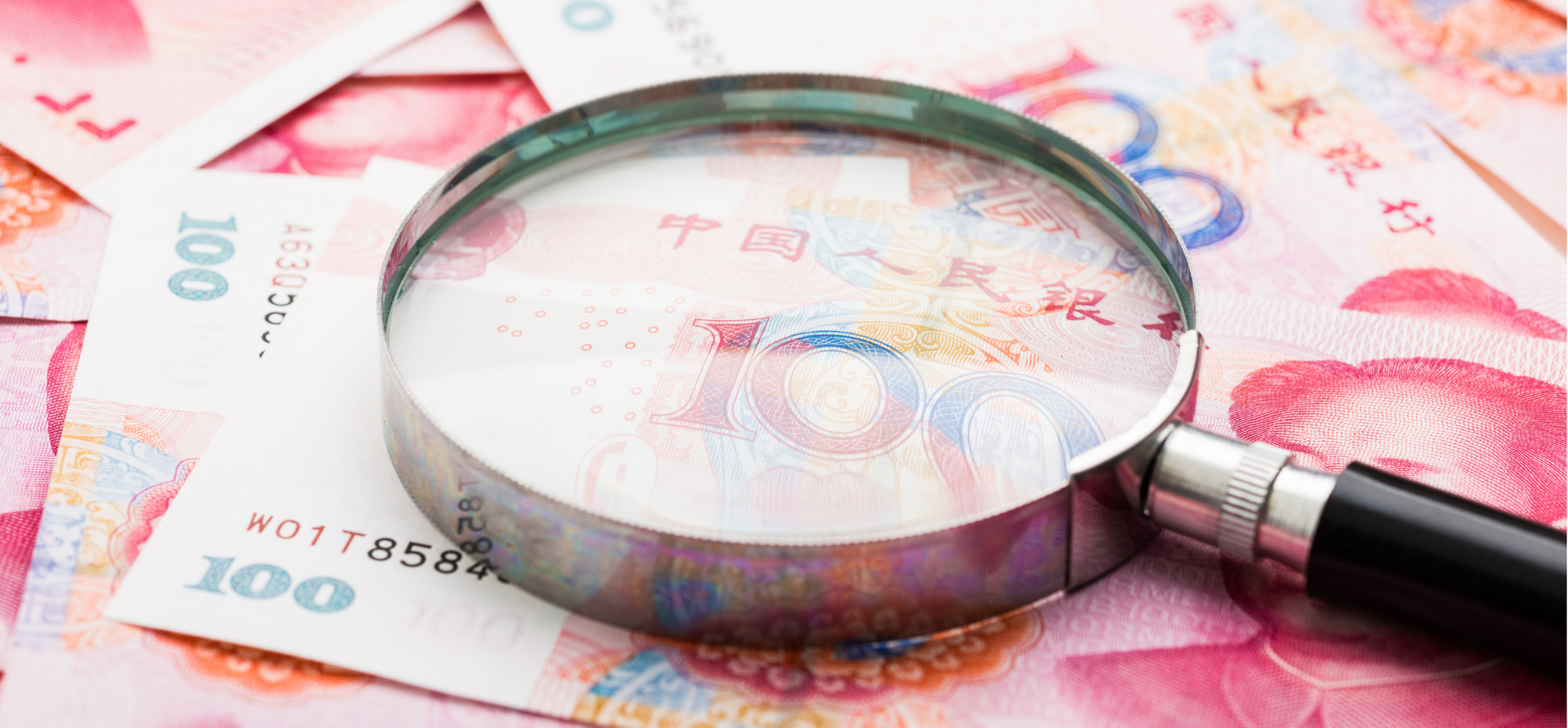By Shawn Wright, Teacher in Nanjing (2019- ongoing)
The cost of living in China can vary depending on where you live. If you live in either Shanghai or Beijing – China’s 2 most expensive cities – the cost of living will be higher. Chinese cities have an unofficial tier ranking system. Tier 1 cities, such as Beijing and Shanghai are generally the most expensive places to live, but also offer the highest quality in terms of lifestyle and amenities (especially Western amenities). Tier 2 cities, such as Nanjing, Suzhou and Hangzhou, are cheaper to live in than in tier 1, whilst still offering many of the same things as tier 1 cities, just on a much smaller scale. Cities that are classed as tiers 3 and 4 offer the lowest cost of living but also the least in terms of entertainment and Westernisation.
It can be pretty easy to save money whilst living in most parts of China. This is especially true if you know how to live like the locals do. The average graduate salary for a native Chinese person in Nanjing is around 4,000-5000元, whereas the foreign English teacher jobs start from around 6-8,000元 and can even go up to 20,000元+ depending on your qualifications and the type of place you work at. So, even if you’re working a nice, easy job with low hours, you can still make enough to live a comfortable life and save some money.
Eating
It’s common to eat out or order food in China. One of the main reasons being that it’s so cheap to order food. You can get a decent meal from a local Chinese restaurant for between 20-40元 (around £2-£4). A plate of beef fried rice or noodles from the family-run restaurants where I live usually costs around 20元 and, if you’re ordering take away the delivery fee is almost non-existent. Unless you’re ordering from a restaurant that’s in another part of town then you only usually get charged roughly £1 for delivery at most. Ordering food is also very convenient; you can easily find most restaurants on an app called Meituan, which is basically like Chinese Deliveroo or Uber Eats. Most schools also offer discounted or even free school meals during the week. So, if you like eating local Chinese food then you can save a lot of money there. Although, it is also wise to be careful about where you order from. Some of the cheap places might not be the most hygienic or serve great quality food, but I’ve not had any problems so far.
Another good way of saving money on food is to cook for yourself. Vegetables and meats can be very cheap in the supermarkets here and more often than not they’re pretty good quality. Some ingredients may be harder to find than others, especially if it’s something that’s not very popular amongst Chinese people. However, you can find most things if you look in the right places. The international supermarkets are often a good bet for finding cooking ingredients and foods that you use at home. The only downside is that they will be slightly more expensive here.
If you fancy eating at a bit more of an upmarket restaurant then you’ll have plenty to choose from in most major cities. You can find restaurants serving all kinds of cuisines from all over the world, from Western dishes to Asian and everything in-between. Most of the nice restaurants are still reasonably well priced and serve good quality food. However, if you want to live the high life for a while, there’s definitely no shortage of high-end restaurants that serve all sorts of meals and drinks. If there are days that you’re just wanting some Western fast food then you can easily find McDonald’s, KFC or Burger King anywhere along with a Starbucks or Costa on every street corner.
Alcohol
Buying alcohol from the supermarkets can be cheap. The majority of major supermarkets sell the same main brands of alcohol you’d find back home. They usually come at a much cheaper price as well. Some foreign alcohols can be a bit more expensive, such as certain beers or ciders but overall, drinks are definitely cheaper to buy in stores. If you enjoy drinking Chinese beer or a spirit called Baijiu, then these can be found in almost any shop, big or small, and they can be bought cheaply. You can get a bottle of Baijiu for as little as 10元 but likewise, you can also get very expensive bottles which will taste a lot better.
Buying drinks at a bars and clubs is slightly different in terms of value. There are a lot of bars that serve cheap drinks and most of these also have promotions on certain days. Typically, you can expect to pay between 20-35元 for a regular drink at a bar and cocktails are usually 50-70元. There are also a lot of bars which serve more expensive drinks, but they tend to be classier establishments. I’ve found that drinks in Chinese nightclubs can be a bit pricey sometimes, depending on where you go. The prices for drinks in some clubs can vary from 40-100元 which is pretty similar to what some people may pay back home.
Transportation
If you live in one of the bigger cities then transportation shouldn’t be an issue. The two most popular ways to get around here in Nanjing are either by Didi or by metro. Didi is essentially just like Chinese Uber, but for a fraction of the price. For me, a trip downtown takes about 20-25 minutes, but it only costs me around 30元. Whereas, back home in the UK for the same price I’d be lucky to get to the bottom of my street. Taxis here are also a similar price, the only difference is that taxi drivers charge by the metre whereas Didi charges a pre-determined fare based on the distance. The most I’ve ever paid for a Didi was just over 100元 for a journey that lasted over an hour. So, it’s very good value for money. Many schools also offer accommodation either on campus or nearby, so commuting costs are usually minimal as well.
Almost all of the main cities in China have a metro system. The metro is super convenient and it’s extremely cheap. In Nanjing, the maximum charge for a journey is 9元 and that’s only if you take it from one end of the city to the other, which would take well over an hour. The metro lines can take you pretty much wherever you want to go in the city, so it’s pretty useful. Since a lot of the metro systems are relatively new to China, they are nice, clean and well maintained.
Another useful method of transport in China is the rental bike service. A few different companies offer this service where you can find a bike almost anywhere in the city, use it and drop it off anywhere you want within the offered radius, which is usually also anywhere in the city. It’s a very simple process as well, you just scan the QR code on the bike which will unlock it and you’re free to take it wherever you like. I really enjoy using this service because it’s extremely cheap (1元/30 mins) and you can pretty much take the bike to the front door of your destination.
If you have the money, then it could be very convenient for you to buy an e-bike. E-bikes are just like electric scooters that many people use to get around the city. You can usually buy one for as cheap as 1000-1500元. Most cities have dedicated lanes for e-bikes, so they are a very viable way to travel around the cities and some come with a little box to help you transport your things.
Merchandise
Merchandise in China is generally a lot cheaper than in the UK. If you stick with Chinese branded items, then you can buy most things that you’ll need for a good price. It’s also fairly easy to find many of the same big name brands you’d expect to see in Europe or the US, however these will be more expensive than their Chinese counterparts. Most of the major cities have big international shopping centres where you can find many well-known Western shops or Chinese stores selling Western brands.
In terms of online shopping, the best platform is Taobao. Taobao is China’s version of Amazon, and you can find near enough anything you want on there – and usually for a good price, too. Many people use Taobao to buy almost everything because it’s so convenient to use and you can probably find most things on there for cheaper than you would in-store. A few vendors are also based abroad and can send items from countries such as the UK or the US directly to your address in China, although these will be more expensive since they have to be imported.
Accommodation
Housing prices in China can vary depending on where you live. Generally speaking, the closer you live to the city centre or one of the financial districts, the more expensive accommodation becomes. In Nanjing, an apartment to yourself near downtown will probably cost around 3500-4000元. Some may be cheaper, and others may be more expensive depending on the area and the age of the building. I currently have a 3 bedroom flat to myself with a kitchen and big living room, costing me 2,600元 every month plus bills. The bills in total add up to around 300元 per month, so nothing too crazy. My apartment is very good value for money, but the downside for me is that it’s a bit out of the way from the main part of the city. I mostly chose it because it was close to my school and it was a nice new apartment.
Nearly every job offer outside of Shanghai is likely to include either free housing provided by your employer, whether that be on campus accommodation or an apartment block nearby. In Shanghai, and in some other cities, they will give you a housing allowance which allows you to freely choose where you live. A lot of schools will give you the choice between the two. One thing you should be aware of is that if you choose to organise your own housing, many landlords in China like the rent to be paid in instalments of 3 months, 6 months or even sometimes a year. There’s usually a little room to negotiate the price of apartments and of how often you pay. During my first couple of months, I paid my rent monthly since I was a bit short on cash until my first payday. Now I just pay my landlord in instalments of 3 months. Some schools may also help you to organise your private housing if you ask them too.
The rent prices for accommodation are going to be highest in the tier 1 cities, especially Beijing and Shanghai. Most people in these places tend to live further outside the city centre as the prices get cheaper the further out you go. The majority of employers in places like Beijing and Shanghai usually offer housing allowances of around 6-8000元 to help offset the expensive rent and the wages in these cities tend to be higher than everywhere else.
There are websites and apps that you can use to find housemates to live with if you want to save some money on rent or you can also look for someone who is renting out a single room in an apartment building. These methods are quite popular with young Chinese professionals since it allows them to save money on rent and bills, and they can meet someone if they’re moving to a new city. Most cities also have WeChat groups for foreigners looking for people to share an apartment with, so it’s worth asking around if that’s something that interests you.
Overall, I think it’s fairly easy to save money in China without having to live a minimalist lifestyle. The majority of teaching jobs for foreigners pay well above what you need to get by, and the cost of living is generally cheaper here than in the west (maybe with the exception of Beijing and Shanghai). If you goal is to make and save as much money as possible then China can be a great place to achieve that. Avoiding the most expensive cities and living like the locals do will allow you to maximise your saving potential. On the contrary, if you want to splash the cash and live a bit more of a luxurious life, then there is definitely scope for that as well in some of the more developed cities. Or, with a little bit of thought and planning you can also mix the best of both worlds and live a very comfortable life whilst saving some money to take home with you. Whatever your motivation is, you can usually find something that suits your needs.




